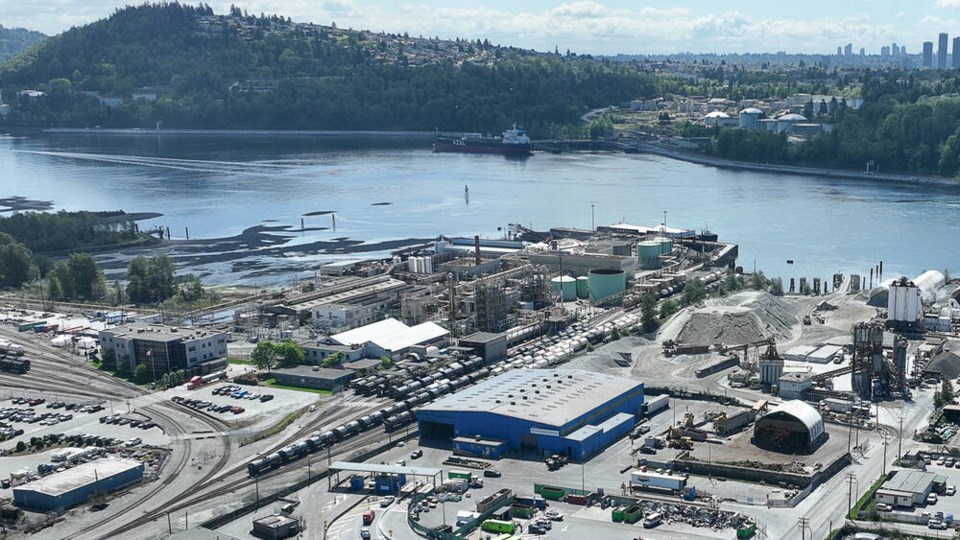Western Canada’s largest producer of liquid chlorine has started efforts to convince the surrounding community that the manufacture of the high-risk chemical should continue at its facility on the North Vancouver waterfront.
On Thursday, Chemtrade will host an open house at the Holiday Inn in North Vancouver. There, representatives including the multinational company’s CEO will present information about incoming safety measures, as well as economic and practical arguments in favour of continuing operations at the plant.
During two sessions, from 2 to 4 p.m. and 6 to 8 p.m., attendees will be able to ask questions and give feedback directly to the company. Chemtrade has also put up a website, askchemtrade.ca, with answers to frequently asked questions and a form to submit other queries.
In April, the North Shore News reported that Chemtrade is seeking to renegotiate its lease with Vancouver Fraser Port Authority, which would otherwise restrict the company from liquid chlorine operations as of 2030. Originally, that lease term was agreed upon due to concerns in the community about the risks associated with chlorine.
While deadly accidents with the chemical have happened in recent years elsewhere around the globe, Chemtrade said the North Vancouver facility has operated with no major issues for 65 years.
Since 2010, Chemtrade has invested $500 million in upgrading the plant, and the company said it plans to make more improvements that will increase safety by a significant margin.
Company plans to further reduce storage, load rail cars indoors at North Vancouver site
One of the most significant efforts to lower risk is reducing the amount of liquid chlorine stored on site.
When the site was first built in 1957, there were 1,600 tonnes of liquid chlorine stored at the facility, said David Gosse, director of North Vancouver operations for Chemtrade. Now, there are 93 tonnes on site, and there are plans to cut that number down to just four tonnes, he said.
“That would have material impact on our quantitative risk curves as well as the potential risks of the community,” he said. “There’s a direct correlation between minimizing storage and minimizing risk.”
Minimal storage is possible due to improvements in just-in-time logistics, where chlorine is made right before being shipped to a customer by rail, Gosse explained.
Another key safety measure the company intends to add is loading the rail cars indoors, said Dale Bossons, vice president of manufacturing.
“If something goes wrong within the loading process, there’s a chance of a release,” he said. That’s why safety experts recommend loading in a sealed building.
“If there was a release, that chlorine is contained within this building, and then you scrub it, remove the chlorine … through a ventilation system,” Bossons said.
With those enhancements, Chemtrade would be able to pull the zone of highest risk to the public almost to the company’s fence line. That would mean higher density residential projects could potentially be built closer to the facility.
To validate the safety improvements and risk reduction at the North Van site, the company has hired a firm called BakerRisk, which will also have representatives at the Thursday open house.
Part of the company’s messaging is the importance of chlorine to create clean drinking water. According to Chemtrade, 70 per cent of Western Canada’s chlorine is made at the local facility, and nearly all the country’s drinking water is sanitized with the chemical.
In bread-and-butter terms, the North Van site employs 120 full-time staff and puts $165 million into the provincial economy, the company said.
Representatives from Chemtrade have met with district council to keep them up to date on efforts to engage the community, said Amy Jonsson, senior manager of corporate communication.
“We’ll continue to look to them for guidance on next steps,” she said.




